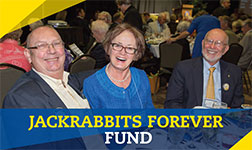Dr. Richard Deming ’76 leads cancer survivors to new heights
The sun will remain asleep for another few hours as Dr. Richard Deming stands without a soul around on the street corner outside his apartment building in downtown Des Moines. The 57-year-old medical director of Mercy Cancer Center whistles while waiting for me to arrive so he can begin another new day absorbing life and helping put death in perspective.
It is time for the 4 a.m. workout. Stair climbing and a lifting routine at the YMCA mark the beginning of what will be a nineteen-hour endurance challenge. The mental, emotional and spiritual workout that follows makes the morning exertion seem weightless. You can’t let a silly thing like gravity get in the way during a day in Dr. Deming’s shoes or you won’t last long.
A few weeks later and a plane trip halfway around the world lands us on Dick Deming’s present circumstance. He is in Nepal, leading a group of fourteen cancer survivors and an equal number of supporters from Iowa on an eighteen-day round-trip journey to Mount Everest Base Camp.
Most of the survivors had never crossed an ocean prior to this opportunity nor had they ever thought much about stepping foot in a place called Kathmandu.
The drastic time-zone change has taken little effect on him. He rises each morning before the eastern sun, makes his rounds in the hallways of the lodge with fellow physician Dr. Rick Rinehart to ensure each of his teammates is healthy and ready to begin the day. If it’s taking a while for the group members to come around, he jumpstarts them with a song or a dance or a backrub or an inspirational reading.
We need this often on these hard, cold mornings, making him a busy man on all sides of the world. He then leads the charge up the world’s highest mountains where the beauty of the Himalayas grabs the hearts, minds, and souls of the cancer survivors and transforms them in ways they never knew were possible.
The doctor skips around yaks and curious onlookers on the hillsides, embracing the world how he pleases. He is well aware that the mountains he brought these people to have taken over his role of mentor. But they wouldn’t be in the world’s most majestic classroom had he not made it a reality.
Born and raised in Madison, South Dakota, Dr. Deming grew up “probably poor†but has no regrets of his upbringing. In 1950s small-town America, the world was innocent, the world was small, and the world was his.
His parents were embarrassingly thoughtful, often doing things such as inviting the town drunk in for a meal. When his mother underwent cancer treatment at the Mayo Clinic in Rochester, Minnesota, during one of the many times she battled the disease before her death seven years after her diagnosis, his father looked up the home address of the neurosurgeon and delivered to him a pheasant, cleaned and frozen in a milk carton as a sign of his gratitude.
Dr. Deming is certainly his parents’ child. While his career in oncology was influenced by his mother’s cancer as much as his interest in math and science, the compassion wasn’t something picked up in a classroom. It was more genetic and could have been applied to any field he chose to pursue and would have likely made him the best at what he does no matter the task.
He was honored with the American Cancer Society’s Lane Adams Quality of Life award this May among having received many other accolades over the years. In his office, he shyly revealed a stack of letters from patients and families of patients who were deeply touched by his role as doctor and friend throughout treatment.
Following Dr. Deming around the cancer center for a full morning and afternoon split up by a lunch of coffee, you realize how heart can go a long way. He’ll listen to a patient talk about grandchildren for two minutes, and that same person will speak of how Dr. Deming sat and listened to them for an hour.
To quote patients and coworkers of his for this story would be the making of a broken record. Words like “amazing,†“incredible,†“saved my life,†and “changed my life†get repeated to the point in which you start to believe he might have affected more lives for the better than any person you’ve ever stood next to.
He also enters Ironman competitions, goes heli-skiing in Canada, and canyoneering in Oman, stories that will make you scratch your head. But those are tales for other times.
When asked when the importance of caring surfaced in his character, Dr. Deming recalls the time he was called to the principal’s office in middle school. There was a dance coming up, marking the first time boys and girls in all their pubescent glory would socialize together under one roof to the magic of song.
The principal had a concern and seeing that Deming had a knack and interest in lifting people up, he turned to the young boy. The request was simple. If any girl wasn’t asked to dance, Deming was to take her hand. The dancing hasn’t stopped since.
On a shivering cold, snow-covered morning at the base camp of Mount Everest, Dick Deming helped string up more than 300 pieces of colorful cloth, which danced in the wind over a group of fourteen cancer survivors.
Here they are called prayer flags, and each one had been written out as a tribute to someone affected by cancer who wasn’t able to join in the journey to Nepal due to either their weakness or their death. There is a good chance Dr. Deming knew most of them personally or had at least learned of their fight.
There is one flag that carries added meaning to him. He made one in remembrance of his mother, Odetta, with the words, “The inspiration for my career in caring. Thank you for showing me the meaning of compassion,†written beneath her name. The first and only time I’ve seen him cry is when he completed this tribute.
After a full day at the office of visiting with cancer patients and helping them with life and death decision-making, Dr. Deming explains the power of what went on behind closed doors that had nothing to do with medical terminology or procedures.
Despite his phone and pager going off simultaneously and the knowledge that demands were increasing with every breath, he listened to every word as the patients talked about their families.
“What they’re talking about is the way that we as humans are immortal,†he articulated. “How do we live forever? We live forever through the genes that we pass on. We’re immortal through the memories that those who live on after us have of us, the tales that they tell about us to the next generation.â€
Dr. Deming never started a family of his own, which is why after his workday, without a second thought, he is able to continue the relationship with his patients, visiting the hospice or the funeral home or the families of those lost to cancer.
During one particular moment on this trek up Mount Everest, Dick Deming seemed more human than at any other time.
Sure he passes gas and curses faulty Internet connections like anyone else—these things are hard to hide when living amongst twenty-eight other people in tight quarters for nearly three straight weeks—but one evening after a long day on the trail of lifting others up and dancing with them when they were silently begging to be asked, he crashed.
He attempted eating his dinner, took a couple measly bites, and lay down in the corner of the dining area, barely conscious and shaky. I placed the coat he had loaned me over him. The next time I saw him was the following morning. Before I could open my mouth, he asked me how I was feeling.
Thoughts of twenty-two years worth of patients seen during his time at Mercy Cancer Center are with Dr. Deming on his trek toward Mount Everest. Good folks come and gone, cared for and passed away, looked after and living to tell about it, these are the moments and memories that he carries.
Yet he skips up the mountain as if gravity doesn’t apply to him. It’s the middle of the journey toward Everest and some of the survivors are having a tough day. He sings out tunes from his favorite musicals and shakes his shoulders and hips as if no one is watching, although he knows they are because he is trying to make his energy contagious.
He shuffles past a Nepalese porter who is lugging nearly 200 pounds on his back up the mountain. The weight looks impossible to bear for more than a few seconds. Yet the young man pauses to observe the doctor. He smiles as if the weight has been lifted off his shoulders.
“That dancing man, he makes me happy,†he says.
He’s just one of many on that mountain, one of many on both the Eastern and Western hemispheres who feel the same way. One of many who will make a man who never passed on any genes live on forever.
Questions or comments on this story? E-mail the author at: brian.triplett@gmail.com.






